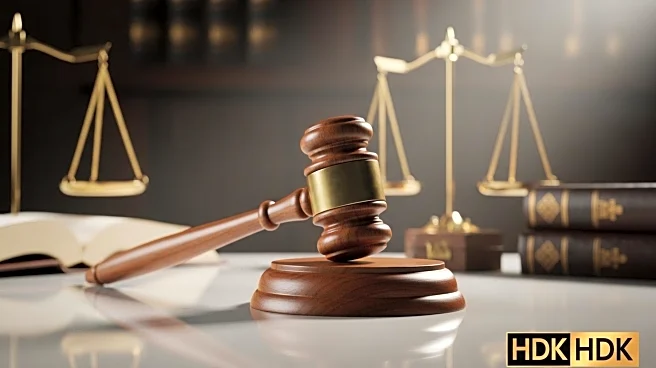What's Happening?
Kate McCann, the mother of missing child Madeleine McCann, testified in Leicester Crown Court regarding the alleged stalking by Julia Wandelt and Karen Spragg. The defendants are accused of stalking the McCann family from June 2022 to February 2025. The situation escalated when Wandelt contacted the McCanns' other daughter, Amelie, which Mrs. McCann described as 'the final straw' leading her to involve the police. The court heard that Wandelt and Spragg confronted the McCanns outside their home in December 2024, demanding a DNA test and attempting to deliver a letter. Mrs. McCann expressed her disbelief that Wandelt could be her missing daughter, citing logical inconsistencies and the fact that Wandelt is Polish. The trial continues as both defendants deny the charges.
Why It's Important?
The case highlights the ongoing emotional and psychological impact on the McCann family, who have been searching for Madeleine since her disappearance in 2007. The actions of Wandelt and Spragg, including spreading conspiracy theories and claiming to be Madeleine, have added distress to the family and potentially hindered the investigation into Madeleine's disappearance. This trial underscores the challenges faced by families of missing persons, including dealing with public scrutiny and unfounded claims. The outcome of the trial could set a precedent for how similar cases are handled legally, particularly concerning the protection of families from harassment.
What's Next?
The trial of Julia Wandelt and Karen Spragg is ongoing, with further testimonies expected to shed light on the extent of their alleged actions. The court will continue to examine evidence and witness statements to determine the validity of the stalking charges. Depending on the trial's outcome, there may be implications for how law enforcement and legal systems address harassment and conspiracy theories related to high-profile missing persons cases. The McCann family may also seek further legal protection or support to prevent future incidents.
Beyond the Headlines
This case raises broader questions about the ethical responsibilities of individuals who engage in conspiracy theories and the impact of such actions on affected families. It also highlights the need for legal frameworks to protect families from harassment and the spread of misinformation. The trial may prompt discussions on the balance between free speech and the protection of individuals from harmful and unfounded claims.









